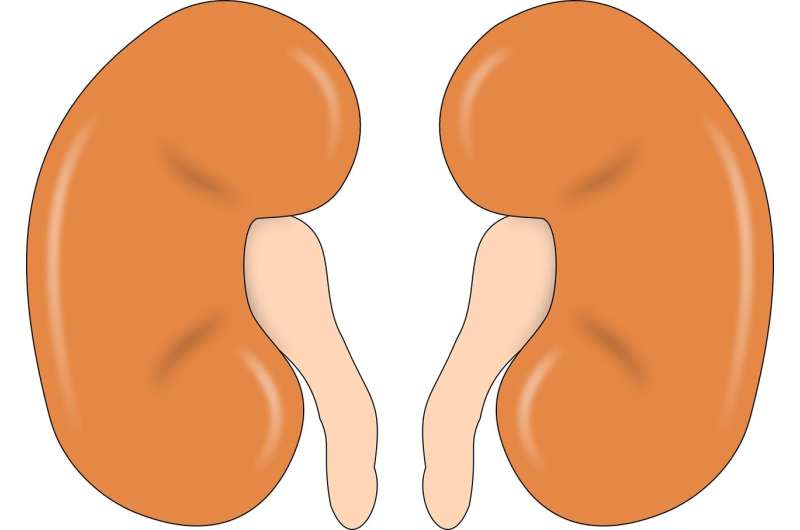This article has been reviewed according to Science X's editorial process and policies. Editors have highlighted the following attributes while ensuring the content's credibility:
fact-checked
peer-reviewed publication
trusted source
proofread
Being hospitalized with acute kidney injury may increase risk for rehospitalization and death

A study supported by the National Institutes of Health found that people who experienced acute kidney injury (AKI) during a hospitalization, including those admitted with AKI or who developed AKI in the hospital, were more likely to revisit the hospital or die shortly after discharge, compared to people hospitalized without AKI. AKI is a sudden loss of kidney function that usually lasts for a short time. The research was published in the American Journal of Kidney Diseases.
According to the findings, people who had been hospitalized with AKI, whether or not they had pre-existing kidney disease, were 62% more likely to be readmitted to the hospital for any reason and 266% more likely to die of any cause within 90 days after discharge from the hospital.
During the year following discharge, those hospitalized with AKI were re-hospitalized nearly 60% more often than those hospitalized without AKI and more than twice as likely to die. Heart failure, sepsis, and pneumonia were among the most common causes for readmission after discharge with an AKI hospitalization.
"We hope this study leads to a growing awareness about the dramatic increased adverse risks after a hospitalization with AKI—outcomes that could substantially affect health," said Dr. Ivonne Schulman, program director at NIDDK's Division of Kidney, Urologic, and Hematologic Diseases, and one of the paper's co-authors. "There currently is no standard of care for people after being hospitalized with AKI, and this information could help get us there."
The researchers analyzed data from nearly 1 million people in a national health insurance claims database, comparing around 470,000 patients who had a hospitalization with an AKI diagnosis with the same number of patients hospitalized without an AKI diagnosis. The two groups were matched on other characteristics, such as pre-existing medical conditions, sex, race, and ethnicity.
AKI is more common in people with medical conditions such as diabetes, high blood pressure, heart disease, or chronic kidney disease. AKI can have different causes, including overuse or misuse of certain medications, or injury to the kidneys from systemic infections. It can also progress into chronic kidney disease, a long-term loss of kidney function possibly leading to the need for kidney transplant or dialysis.
"Monitoring people with AKI in the weeks after hospital discharge may be critical in preventing future adverse health outcomes," said NIDDK Director Dr. Griffin P. Rodgers. "These findings present an opportunity for further research to develop and test interventions designed to reduce the risks associated with AKI."
More information: Ivonne H. Schulman et al, Readmission and Mortality After Hospitalization With Acute Kidney Injury, American Journal of Kidney Diseases (2023). DOI: 10.1053/j.ajkd.2022.12.008




















